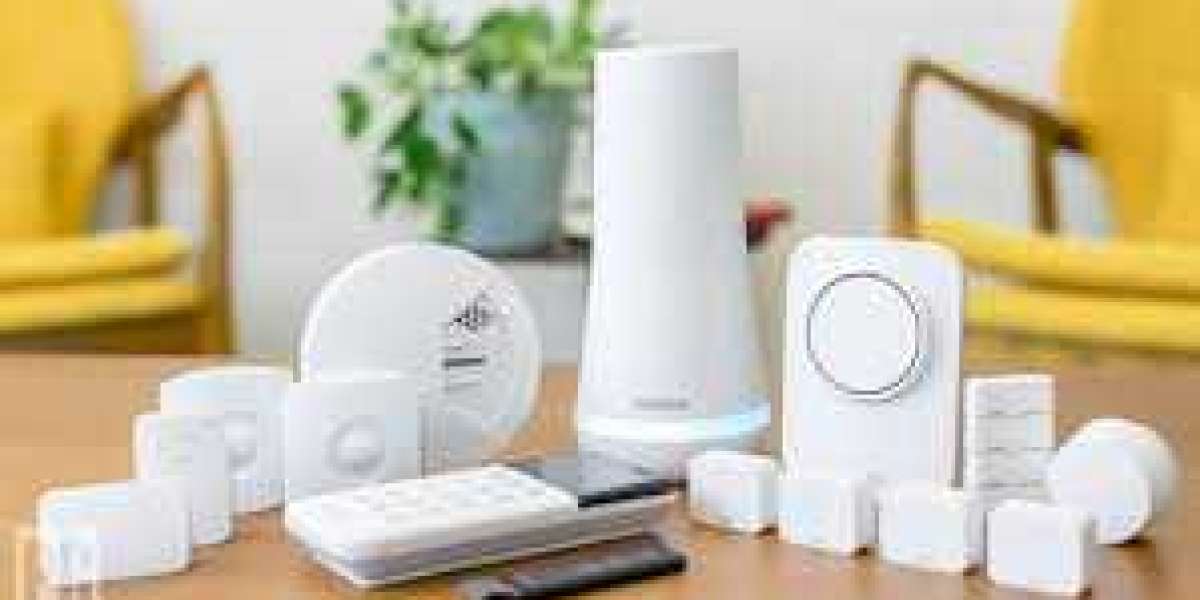Introduction:
Smart Home Appliances Market Size is expected to USD 128.94 Billion by 2032, at (CAGR) of 18.40% during the forecast period (2023 - 2032).
The Smart Home Appliances market is at the forefront of the technological revolution, redefining the way we interact with and manage our households. With the integration of connectivity, artificial intelligence, and automation, smart home appliances are making homes more efficient, secure, and enjoyable. This article explores the trends, applications, and key players shaping the Smart Home Appliances Market.
Market Overview:
Smart home appliances are devices equipped with connectivity features that enable users to control and monitor them remotely via smartphones or other smart devices. From smart refrigerators and thermostats to intelligent lighting and security systems, these appliances bring automation and convenience to modern living spaces.
Key Drivers:
- Rising Consumer Demand for Convenience: The primary driver behind the growth of the Smart Home Appliances market is the increasing demand for convenience. Consumers seek appliances that can be easily controlled and monitored, allowing them to streamline household tasks and optimize energy usage.
- Advancements in IoT (Internet of Things) Technology: The evolution of IoT technology has been a key enabler for smart home appliances. The ability of appliances to connect and communicate with each other creates a seamless and integrated home environment, enhancing overall efficiency.
- Energy Efficiency and Sustainability: With a growing focus on sustainability, smart home appliances often come equipped with energy-efficient features. Users can monitor and manage their energy consumption, contributing to both cost savings and environmental conservation.
- Enhanced Security Features: Smart home security systems have become a significant driver of market growth. Appliances such as smart doorbells, surveillance cameras, and smart locks provide users with enhanced control and monitoring, bolstering home security.
Get a free sample @ https://www.marketresearchfuture.com/sample_request/3775
Key Companies in the Smart Home Appliances market include:
- Haier Group Corporation
- Electrolux
- Samsung Group
- LG Electronics Inc.
- Whirlpool Corporation
- Fujitsu General Limited
- Dacor
- Voltas Limited
- Panasonic Corporation
- Robert Bosch GmbH.
Key Players:
- Samsung Electronics Co., Ltd.:Samsung is a global leader in the Smart Home Appliances market, offering a diverse range of connected devices. From smart refrigerators with built-in cameras to intelligent washing machines, Samsung continues to innovate in the smart home space.
- LG Electronics Inc.:LG Electronics is a prominent player in the market, providing a variety of smart home appliances. The company's offerings include smart TVs, connected kitchen appliances, and energy-efficient air conditioning systems.
- Whirlpool Corporation:Whirlpool is a well-established brand in the home appliance industry, and it has embraced smart technology. The company offers smart refrigerators, ovens, and washing machines designed to enhance user convenience.
Market Trends:
- Voice-Activated Controls:The integration of voice-activated assistants, such as Amazon's Alexa and Google Assistant, has become a prevailing trend in smart home appliances. Users can control and command their devices using natural language, adding a layer of user-friendly interaction.
- Smart Home Hubs and Ecosystems:The development of smart home hubs and ecosystems is gaining traction. These platforms allow different smart devices to work seamlessly together, creating a holistic and interconnected smart home experience.
- AI-Powered Automation:Artificial intelligence is increasingly being incorporated into smart home appliances, enabling predictive and adaptive functionalities. Appliances can learn user preferences and automate tasks, such as adjusting thermostat settings or suggesting optimal washing cycles.
- Focus on Privacy and Security:With the growing connectivity of smart home devices, there is an increased emphasis on privacy and security. Manufacturers are implementing robust security measures to protect user data and prevent unauthorized access to smart home systems.
Read more articles –
Tantalum Capacitors for 5G Base Stations Market








